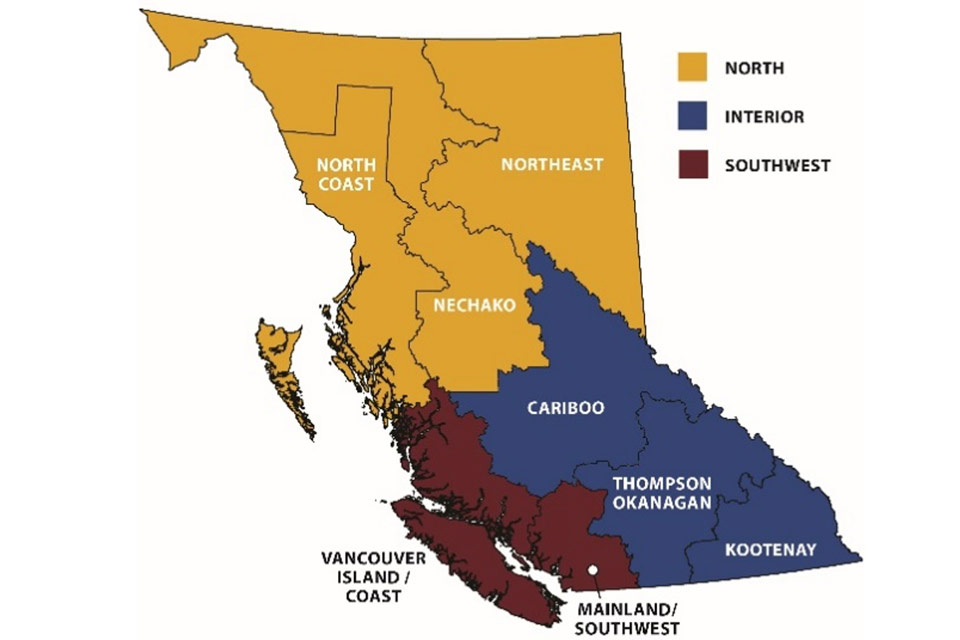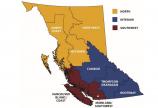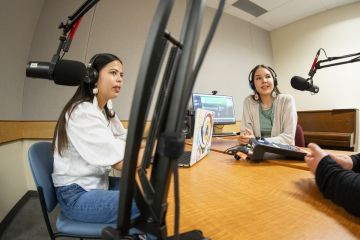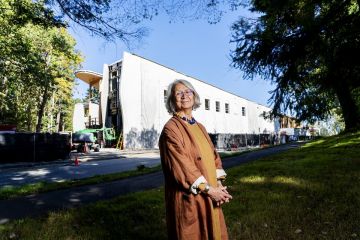Major survey of BC First Nations’ economic development

The British Columbia Ministry of Jobs, Economic Development and Competitiveness (MJEDC) recently released the BC First Nation Community Economic Development Survey. The analysis reveals the interconnectedness of Indigenous economic, cultural and social values. Historically, once vibrant and sustainable economies were destroyed by colonial practices. Empowered by traditions, guided by laws and values, Nations are returning to well-being and economic diversity.
Designed in partnership with UVic’s National Consortium for Indigenous Economic Development (NCIED), BC Assembly of First Nations (BCAFN), New Relationship Trust (NRT), and Indigenous Business and Investment Council (IBIC), the survey underscores the vital impact of one UVic centre—the NCIED—in Indigenous communities across BC.
Chris Bechard, Senior Advisor, Indigenous Economic Opportunity, MJEDC, commented, “NCIED’s combination of deep, direct Indigenous economic development experience with academic methods and rigour truly enhanced the quality of both the survey process and product.”
Chiefs, councillors, and economic development corporations, from 75 communities, located in the eight economic regions of BC, offered insight into the complexities of their Nations. Most significantly, consensus indicated economic development was interconnected with community wellness, and cultural and social values. The top economic development priorities selected by Chiefs and councils were financial self-sufficiency for their communities and building a future for their youth. As well, consensus signified that projects must have a payback to their communities’ values as well as meet social and cultural guidelines. On the other hand, geography differentiated regional economic activity. And, although 80 to 90 per cent of respondents reported a structured approach to economic development in the form of governance, policies and laws, challenges to economic development prevailed.
Despite the geographic and industry-type diversity across regions, respondents universally identified the most important business needs and supports to deliver economic development as: business entrepreneurial training; mentoring and coaching; and capacity development.
Many partnerships and organizations have been working on supporting these areas of growth. Since 2013, NCIED, in partnership with Tribal Resources Investment Corporation (TRICORP) and UVic’s Gustavson School of Business, has collaborated with Indigenous communities to build capacity for leaders, entrepreneurs and economies. Specifically, upon invitation, a range of programs, founded on Indigenous culture and customized for each community, have been delivered by Indigenous facilitators, Gustavson professors and industry experts.
Programs such as Indigenous Advancement of Cultural Entrepreneurship (I‑ACE); the Canadian Aboriginal Management Program (CAMP); the Management Training Academy (MTA) and E-commerce EAGLE, Empowering Aboriginal Generation of Leaders and Entrepreneurs, have all been formed with the idea of offering the training, mentoring and coaching identified by survey respondents as a necessary step. As well, the BC Association of Aboriginal Friendship Centres (BCAAFC) partnered with NCIED and Gustavson to co-develop and co-deliver the innovative 3C Challenge to 1,000 Indigenous youth in BC. Before the COVID pandemic, 300 youth had completed the entrepreneurial introductory training. Since transitioning to an online platform in April, 50 youth have participated in five cohorts. While these programs and others are already underway, the survey highlights the importance of continuing to collaborate with Indigenous communities to support their economic development, sustainability and prosperity.
Photos
In this story
Keywords: Indigenous, business, entrepreneurship, industry partnerships
Publication: The Ring





